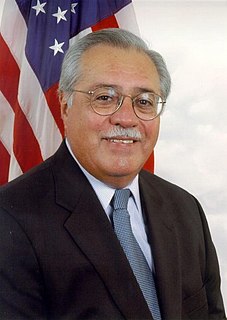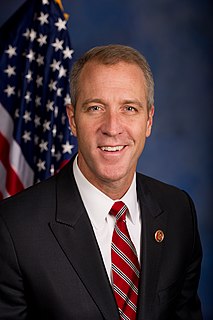A Quote by Bernie Sanders
I voted against the war in Iraq. I voted against the first Gulf War. I think war is the last resort - the last option of a great military power like us. I think that we need to focus on building coalitions. Yes, ISIS must be destroyed. But it should be destroyed by a coalition of Muslim nations on the ground with the support of the United States and the other major powers in the air and in training the troops there.
Quote Topics
Related Quotes
I think, while it is true that the Hillary Clinton and I voted differently on the war in Iraq, what is important is that we learn the lesson of the war in Iraq. And that lesson is intrinsic to my foreign policy if elected president, is the United States cannot do it alone. We cannot be the policeman of the world. We are now spending more I believe than the next eight countries on defense. We have got to work in strong coalition with the major powers of the world and with those Muslim countries that are prepared to stand up and take on terrorism.
The latest developments in Iraq are deeply troubling, but as the United States considers military and diplomatic responses to the actions of the Islamic State in Iraq and Syria (ISIS) action, we should be clear that U.S. troops on the ground cannot go a million miles near a sectarian civil war-it's simply not an option.
I want to break up the Wall Street banks. Hillary Clinton doesn't. I want to raise the minimum wage to 15 bucks an hour. She wants $12 an hour. I voted against the War in Iraq. She voted for the War in Iraq. I believe we should ban fracking. She does not. I believe we should have tax on carbon and deal aggressively with climate change. That is not her position.
Particularly when the war power is invoked to do things to the liberties of people, or to their property or economy that only indirectly affect conduct of the war and do not relate to the engagement of the war itself, the constitutional basis should be scrutinized with care. ... I would not be willing to hold that war powers may be indefinitely prolonged merely by keeping legally alive a state of war that had in fact ended. I cannot accept the argument that war powers last as long as the effects and consequences of war for if so they are permanent -- as permanent as the war debts.
In every major war we have fought in the 19th and 20th centuries. Americans have been asked to pay higher taxes - and nonessential programs have been cut - to support the military effort. Yet during this Iraq war, taxes have been lowered and domestic spending has climbed. In contrast to World War I, World War II, the Korean War and Vietnam, for most Americans this conflict has entailed no economic sacrifice. The only people really sacrificing for this war are the troops and their families.
In the Islamic world, the U.S. is seen in two quite different ways. One view recognizes what an extraordinary country the U.S. is.The other view is of the official United States, the United States of armies and interventions. The United States that in 1953 overthrew the nationalist government of Mossadegh in Iran and brought back the shah. The United States that has been involved first in the Gulf War and then in the tremendously damaging sanctions against Iraqi civilians. The United States that is the supporter of Israel against the Palestinians.
Our job is to provide coalition the military equipment that they need; the air support they need; special forces when appropriate. But at the end of the day for a dozen different reasons, not the least of which is that ISIS would like American combat troops on the ground so they could reach out to the Muslim world and say, "Look, we're taking on those terrible Americans."
Yes and no. Because America has only about 1 percent of the population serving in the military, it is hard for many civilians to understand the sacrifices military families make. However, my experience is that after the Vietnam War, the public learned that they should support the military whether or not they support the war. You've seen that outpouring of support for the veterans of both Iraq and Afghanistan.



























